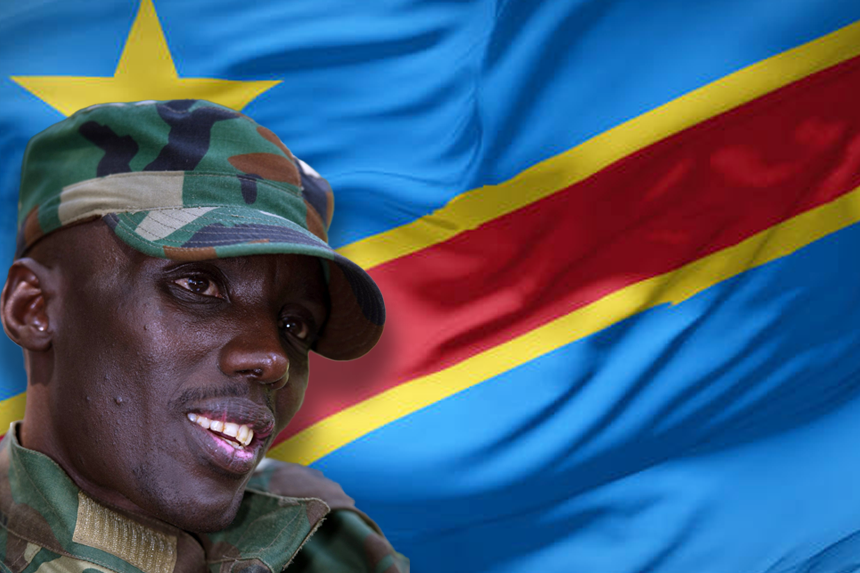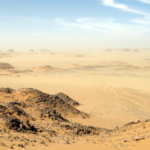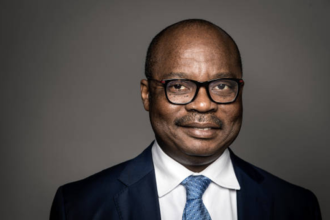As members of the infamous M23 rebel group advance into the country’s east, battling with the national army and seizing strategic positions, the Democratic Republic of Congo (DR Congo) has been plunged into anarchy. A escalating verbal battle between the Democratic Republic of the Congo and Rwanda has resulted from the fighting, which has claimed hundreds of lives in just two weeks. Sultani Makenga, the leader of the M23 Rebellion, has had a significant impact on the conflict.
- What Caused the DR Congo to Enter Such a Crisis?
- Sultani Makenga is who?
- What Caused Makenga to Become Involved in the Unrest in DR Congo?
- How Did the Conflict Change as a Result of Makenga's Ascent Through DR Congo's Armed Groups?
- Why Was Makenga the M23 Rebel Group's Leader?
- What Impact Did Internal Power Battles Have on the Rebellion's Outcome in the M23?
- What transpired with Makenga following the defeat of the M23?
- What Impact Has Makenga's Leadership Had on the Present Conflict?
What Caused the DR Congo to Enter Such a Crisis?
One must examine the life of Sultani Makenga, the head of the M23 rebel group, who is charged with numerous war crimes, in order to comprehend the origins of this intricate struggle. His firsthand account of decades of conflict, outside interference, and the allure of DR Congo’s mineral wealth provides insight into how the nation came to be in its current situation, with the M23 Rebellion being a major contributing factor to the instability.
Sultani Makenga is who?
On Christmas Day in 1973, Sultani Makenga was born in the DR Congo’s picturesque town of Masisi. Raised by Tutsi parents, he left school at the age of 17 to join the Rwandan Patriotic Front (RPF), a Tutsi rebel organization in Rwanda on the other side of the border. The RPF fought for the right of Tutsi refugees who had been displaced from Rwanda to return home and for increased Tutsi representation in the Hutu-dominated Rwandan government at the time.
Makenga fought against Rwanda’s Hutu-dominated army for four years, getting caught up in the 1994 genocide, which saw 800,000 Tutsis and moderate Hutus massacred by Hutu extremists. In a rare interview from 2013, Makenga reflected on this period, saying, “My life is war, my education is war, and my language is war… but I do respect peace.”
Many of them fled to what is now the Democratic Republic of the Congo when the RPF’s advances ousted Rwanda’s extreme Hutu government. Makenga joined the Rwandan army after the RPF took control, eventually becoming a sergeant and deputy platoon commander. One of his comrades said he was “very good at setting up ambushes”. However, his possibilities for a military career in Rwanda were limited because he spoke neither French or English and had only a rudimentary education.
What Caused Makenga to Become Involved in the Unrest in DR Congo?
Makenga was a member of the Rwanda-supported rebels that deposed longtime DR Congo leader Mobutu Sese Seko and established Laurent Kabila as the country’s new leader in 1997. However, Makenga quickly became at odds with his superiors and disobeyed instructions to return to Rwanda, which resulted in his detention by Rwandan authorities. He spent a number of years behind bars on the island of Iwawa.
In the meantime, hostilities between Kabila and Rwanda’s rulers intensified. Fearing that the Hutu militias who committed the 1994 genocide might return and destabilize the area, Rwanda was determined to destroy them after they had fled to the Democratic Republic of the Congo. However, Kabila was unable to keep the militias under control and started to drive out Rwandan forces, which resulted in the country’s 1998 invasion of the Democratic Republic of the Congo. After being freed from jail, Makenga joined a rebel organization supported by Rwanda and joined the front lines as a commander.
Kabila accused Tutsis of aiding the Rwandan invasion, which led to widespread prejudice against the Tutsi minority in the Democratic Republic of the Congo. “Kabila was a politician, while I am not,” said Makenga, who is still in the Democratic Republic of the Congo, feeling deceived by Kabila. As a soldier, I am familiar with the language of the gun.
How Did the Conflict Change as a Result of Makenga's Ascent Through DR Congo's Armed Groups?
Makenga gained a reputation throughout time for his ability to lead sizable troop formations and his strategic thinking. Ethnic tensions increased and prejudice against Tutsis grew following the invasion of Rwanda. A sizable UN military force was sent in to help stabilize the situation as the conflict spread to several nearby nations. Over five million people perished in the years-long conflict, primarily from malnutrition or illness.
Despite the conflict’s formal end in 2003, Makenga remained loyal to rebel groups that resisted the Congolese government. Tutsi rebels such as Makenga were assimilated into the Congolese military in an effort to promote peace; this process is known as “mixage.” Makenga, however, defected to join the M23 uprising as the political climate in the Democratic Republic of the Congo changed once more.
Why Was Makenga the M23 Rebel Group's Leader?
The M23 group was growing more active in the east of the Democratic Republic of the Congo. The group got its name from a peace agreement that was signed in March 2009 but had not been upheld. The rebels said the government had broken the peace agreement and they were fighting to defend Tutsi rights. Makenga became the head of the M23 after swiftly gaining notoriety inside it.
Makenga led the M23 in a bloody rebellion in November 2012 that culminated to the conquest of Goma, a significant eastern city. Although Kigali has recently said that the violence near its border constitutes a security danger, the DR Congo and the UN accused Rwanda’s Tutsi-dominated government of backing the M23.
Makenga was being seriously accused of war crimes by 2012. He was sanctioned by the United States on charges of organizing campaigns of brutality against civilians and enlisting child soldiers. Makenga rejected the allegations, describing them as “baseless.” The UN, meanwhile, said that he was accountable for crimes like murders, sexual assaults, and kidnappings.
What Impact Did Internal Power Battles Have on the Rebellion's Outcome in the M23?
The M23 quickly became divided, with one section supporting Makenga and the other supporting General Bosco Ntaganda, his opponent. After Makenga’s side won the ensuing war, Ntaganda—who had gained the moniker “The Terminator” for his brutality—was finally compelled to escape to Rwanda.
After turning himself in to the US embassy in Rwanda in 2013, Ntaganda was found guilty of war crimes by the International Criminal Court (ICC) and given a 30-year prison sentence. Makenga won, but his victory didn’t last long. The M23 rebels were forced to leave Goma after the UN sent a 3,000-strong force to help the Congolese military retake the city. In addition to being accused of aiding the M23, Uganda has refuted these claims, but Makenga escaped there.
What transpired with Makenga following the defeat of the M23?
Even after the M23 was driven out of DR Congo, Makenga continued to play a significant role in the area after going into exile in Uganda. Uganda did not comply with the Congolese request for Makenga’s extradition, even though he was wanted by the Democratic Republic of the Congo for war crimes.
The eastern region of DR Congo had been beset by a variety of armed organizations for eight years, but the most notorious leaders of the M23 had not been present. But in 2021, Makenga reappeared and resumed his military activities, spearheading the M23’s conquest of North Kivu province. There have been several unsuccessful ceasefires between the Congolese government and the M23.
What Impact Has Makenga's Leadership Had on the Present Conflict?
A new chapter in the ongoing battle began in 2023 when a judge in the Democratic Republic of the Congo sentenced Makenga to death in absentia. Makenga has mostly avoided the spotlight throughout the M23’s most recent offensive, which many suspect is aided by Rwandan forces. Rather, communications have been dominated by his spokesperson and Corneille Nangaa, the leader of a coalition of rebel organizations.
Makenga’s strategic influence is still very much in place behind the scenes, despite his diminished public visibility. “I am fighting for my three children so that one day they will have a better future in this country,” Makenga said in a rare remark that touched on his reasons. Makenga maintains that he is not against peace despite his propensity for violence. “I shouldn’t be perceived as a man who is indifferent to peace. He remarked, “I have a heart, a family, and people I care about.”
However, Makenga’s pursuit of his objectives continues to come at a great cost to regular people, as the violence in the Congo continues to harm millions of civilians. Makenga would be executed if he were taken prisoner by Congolese forces. Despite this, he says, “I am willing to sacrifice everything.”








